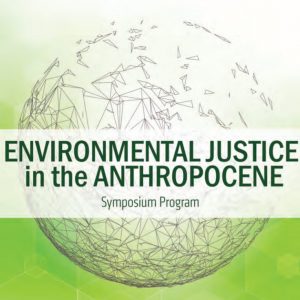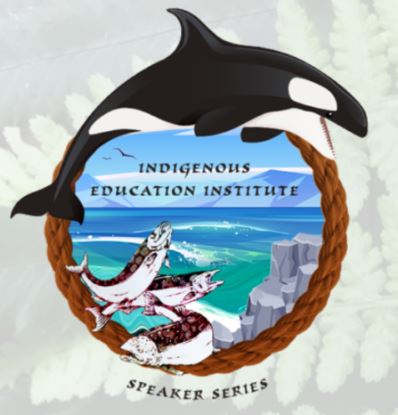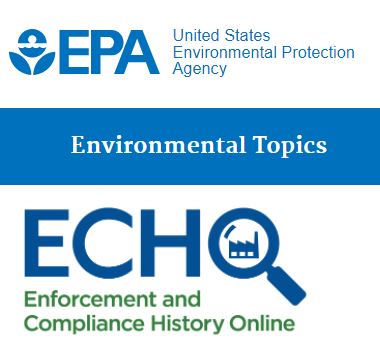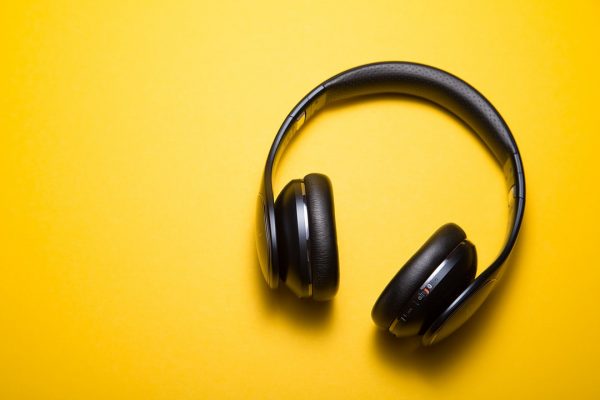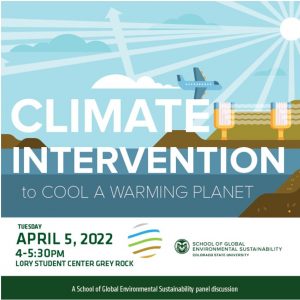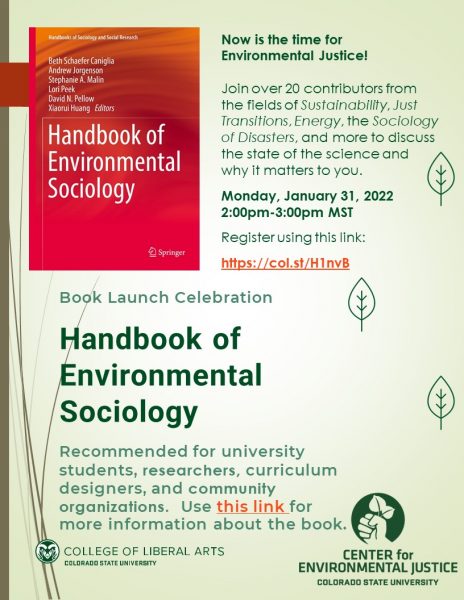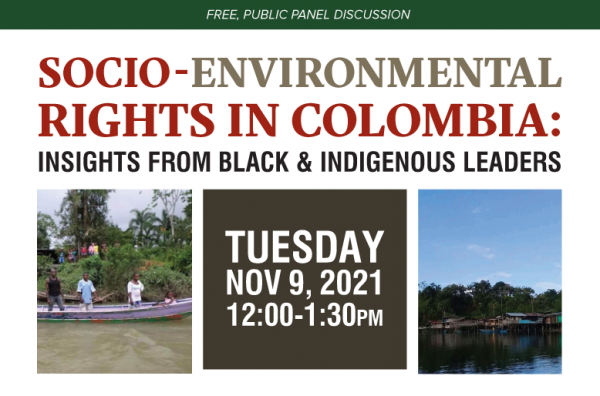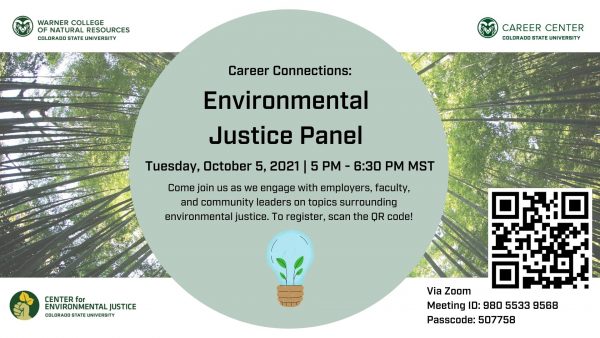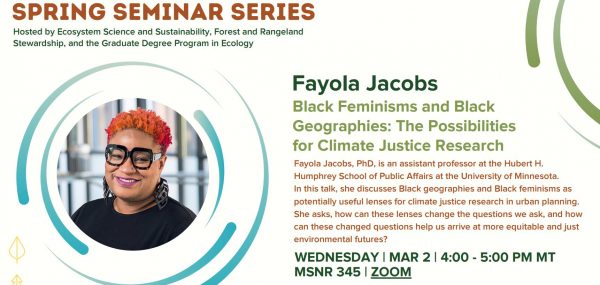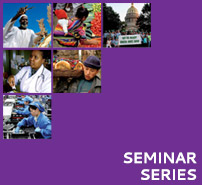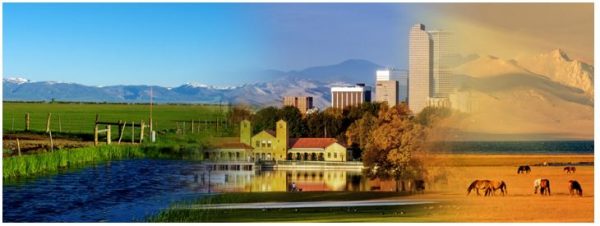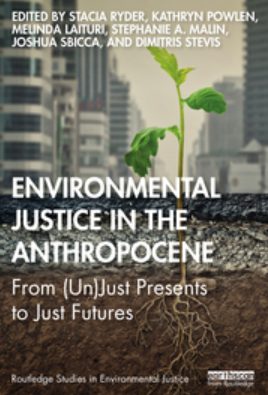UPCOMING ENVIRONMENTAL JUSTICE EVENTS
Planning Climate Grief to Active Hope Workshops
Send an email to Mindy if you are interested in hosting or scheduling a workshop with us. mindy.hill@colostate.edu
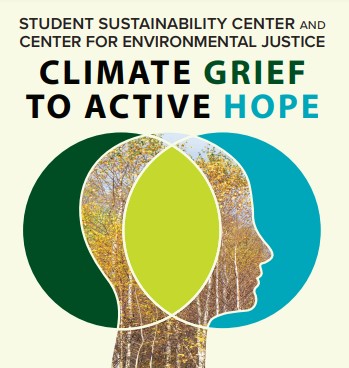
Looking for Jobs or Internships in Environmental Justice? Check out these resources:
Social Justice - Criminal, Environment/Sustainability, Law, Women
- CSU Pre-Law Advising and Club
- CSU Sociology Department Internship Recommendations
- Sociology faculty also recommend exploring these local organizations:
Homeward Alliance, Colorado Organization for Victim Assistance, Colorado Criminal Justice Reform Coalition, SAVA, Crossroads, Restorative Justice, Urban Institute, WGAC Victim Assistant, CSU Police Department, AKD Honors Society
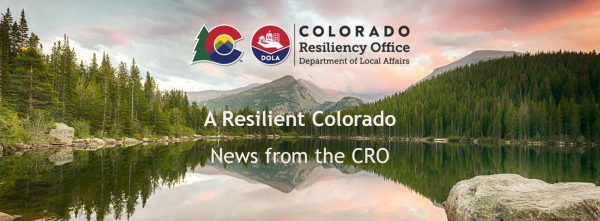 Colorado Environmental Justice Task Force Finalizes its Recommendations
Colorado Environmental Justice Task Force Finalizes its Recommendations
The Environmental Justice Action Task Force has submitted its final recommendations to the legislature, governor’s office, and CDPHE.
The Task Force solicited community feedback from across the state for nearly a year. It held seven full Task Meetings including four virtual meetings with the in-person components in Commerce City, Grand Junction, Greeley, and Pueblo. It held 33 subcommittee meetings spanning 77 hours. It received over 300 written public comments and survey responses and also heard from dozens of community members in verbal public comments and during focus groups, coffee chats, and cafecitos.
Based on this feedback and extensive deliberation at its meetings, the Task Force developed its final recommendations, which are available here.
- Learn more about the Task Force and its members on the Environmental Justice Webpage
- Review the Task Force’s Scope of Work
- View all of the Task Force’s documents in its public Google Drive folder
- Watch recordings of Task Force meetings on CDPHE’s YouTube channel
Global Environmental Justice Conference April 13-14, 2026
 Where Do We Grow From Here?Environmental
Where Do We Grow From Here?Environmental
Justice and the Politics of Hope in the Planetary Age
Global Conference April 13-14, 2026
The Center for Environmental Justice at CSU, together with our global partners, announces and welcomes you to join us for an extraordinary gathering to continue the dialogue and inspire action on environmental justice.
We invite proposals for papers, performances, events, and panels across the full scope of society and nature, encompassing all spatial and temporal scales, and all perspectives. These may include scholars, students, and researchers from all disciplines, policymakers, practitioners, advocates, and community-based experts. We will do our best to accommodate the time zone of those presenting virtually.
Timeline and Fees
● Proposals are due by 11:59 PM Mountain Daylight Time (UTC-6) on November 10, 2025. WE ARE NO LONGER ACCEPTING PROPOSALS
● All applicants will be notified by November 21, 2025 if their proposal is accepted.
● Applicants must confirm their participation by 11:59 PM Mountain Standard Time (UTC-7)
on January 12, 2026 in writing and by paying the registration fees.
The in-person component will take place in
Fort Collins, Colorado, a vibrant, welcoming university community in the United States. There will be a hybrid option to attend as well.
CONFERENCE THEMES
- The Many Meanings of Environmental Justice
- Environmental Justice and Democracy
- Just Transitions in a Planetary Age
Read the full Call for Proposals here.
SCHOLARSHIPS, NEWS, ENGAGEMENT & EMPLOYMENT OPPORTUNITIES
NEW PUBLICATION from CEJ and our Partners!
For the English version please see https://www.unrisd.org/en/library/publications/care-work-in-the-just-transition-providing-for-people-and-planet
For the Spanish version please see https://www.unrisd.org/en/library/publications/el-trabajo-de-cuidados-en-la-transicion-justa-proveer-para-las-personas-y-el-planeta
For the Portuguese version please see - https://www.unrisd.org/en/library/publications/trabalho-de-cuidados-na-transicao-justa-provendo-para-as-pessoas-e-o-planeta
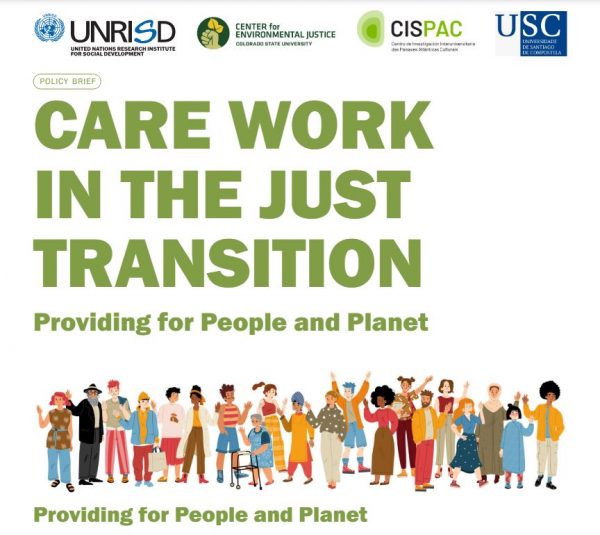
Just Transition (JT) is a policy framework promoted by labour and environmental justice organizations to design climate and ecological transition policies from the perspective of those most affected by social inequalities. The framework indicates how to compensate for job loss due to the mandated phasing-out of carbon-intensive and other industries while also responding to the most urgent and vital needs of frontline communities by creating decent and stable jobs
in clean chemistry, energy and infrastructure.
Over the past decade, the JT concept has been incorporated in International Labour Organization (ILO), United Nations Framework Convention on Climate Change (UNFCCC), European Union (EU) and various governments’ policy processes. So far, JT strategies and policies have paid limited attention to the social and environmental dimensions of care work and to its centrality for satisfying human needs while also protecting the biophysical environment.
This policy brief represents the experiences, perspectives and demands emerging from work in domestic and community caregiving, subsistence food provisioning, health care, environmental care and education.
CDPHE Releases Infographic for Environmental Justice Task Force Recommendations
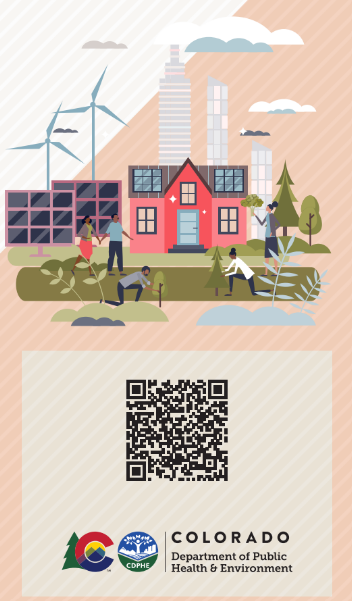
One year ago today, the Environment Justice Action Task Force published its final recommendations.
After several meetings, public input sessions, surveys, and community feedback, the Task Force came up with robust recommendations to advance environmental justice in Colorado. The Task Force then submitted these final recommendations to the legislature, the Governor’s Office, and CDPHE. On March 1, 2023, Governor Polis sent CDPHE a letter with instructions to implement the recommendations of the Task Force.
Want to learn more about the recommendations? We created a graphic summarizing the main points from the fifty-page report. You can find the graphic here.
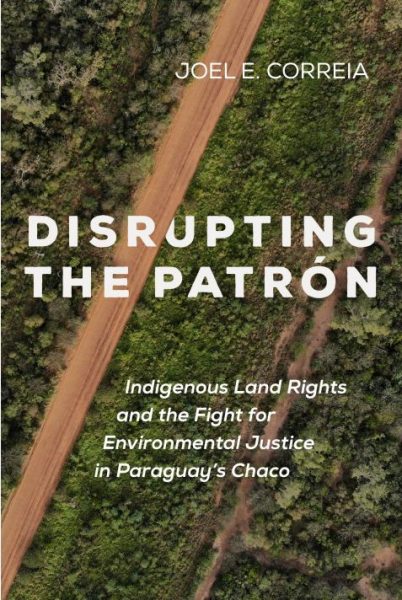 Disrupting the Patrón---Indigenous Land Rights and the Fight for Environmental Justice in Paraguay's Chaco
Disrupting the Patrón---Indigenous Land Rights and the Fight for Environmental Justice in Paraguay's Chaco
CEJ would like to welcome Joel E. Correia to CSU and congratulate him on his first publication! Joel E. Correia is Assistant Professor in the Human Dimensions of Natural Resources Department at Colorado State University. A free ebook version of this title is available through Luminos, University of California Press’s Open Access publishing program. Visit www.luminosoa.org to learn more.
In Paraguay’s Chaco region, cattle ranching drives some of the world’s fastest deforestation and most extreme inequality in land tenure, with grave impacts on Indigenous well‑being. Disrupting the Patrón traces Enxet and Sanapaná struggles to reclaim their ancestral lands from the cattle ranches where they labored as peons—a decades-long resistance that led to the Inter‑American Court of Human Rights and back to the frontlines of Paraguay’s ranching frontier. The Indigenous communities at the heart of this story employ a dialectics of disruption by working with and against the law to unsettle enduring racial geographies and rebuild territorial relations, albeit with uncertain outcomes. Joel E. Correia shows that Enxet and Sanapaná peoples enact environmental justice otherwise: moving beyond juridical solutions to harm by maintaining collective lifeways and resistance amid radical social-ecological change. Correia’s ethnography advances debates about environmental racism, ethics of engaged research, and Indigenous resurgence on Latin America’s settler frontiers.
"Disrupting the Patrón tells a story of the underrepresented peoples of Paraguay, of their endurance under multiple cycles of dispossession that threaten their existence, and of the various forms that their resistance takes."—Gabriela Valdivia, coauthor of Oil, Revolution, and Indigenous Citizenship in Ecuadorian Amazonia
"By focusing on the racial and cultural implications of land and labor in Indigenous struggles in Paraguay, Joel E. Correia expands our focus on environmental concerns to include human rights, cultural rights, and the need for legal and political justice."—Nancy Postero, author of The Indigenous State: Race, Politics, and Performance in Plurinational Bolivia
"In the Paraguayan Chaco, missionaries, settlers, and officials turned stolen Indigenous land into ranches where cattle is valued more than Indigenous people. Correia's vivid ethnography of the interstitial strategies and land reoccupations through which Enxet and Sanapaná people carry out a 'dialectics of disruption' makes a crucial and incisive contribution to our understanding of racialized geographies, settler capitalism, and environmental and Indigenous justice."—Gastón R. Gordillo, author of Rubble: The Afterlifeof Destruction
CEJ Leader, Azmal Hossan, featured on Agents of Change Podcast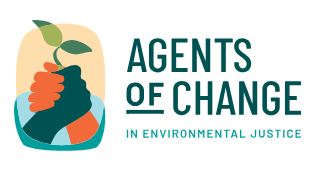

Azmal Hossan joins the Agents of Change in Environmental Justice podcast to discuss his recent selection for the 2030 Climate Champions fellowship, an initiative from The Asia Foundation aimed at bolstering U.S. and China collaboration on climate change.
https://open.spotify.com/episode/6wig2QPaI7kEY7sVFT6j5s
FracTracker Alliance Internships
Explore paid internship opportunities for undergraduate and graduate-level students: https://www.fractracker.org/about-us/internships/#toggle-id-1
Each spring, FracTracker Alliance welcomes undergraduate and graduate college and university students with a passion for using data and mapping to fight environmental injustice to join our team. Working with FracTracker Alliance offers students invaluable resume-building work experience and networking opportunities. Our interns work closely with members of our staff team, learning about and contributing to our science and fact based work shedding light on the impacts of oil, gas and petrochemical industries. Interns will have the opportunity to participate in events that increase their professional networks, work on projects that will enhance their skill sets, and interact with our diverse network of partner organizations.
 Rachel Carson Council Fellowship
Rachel Carson Council Fellowship
The RCC Fellowship Program is designed to identify outstanding students with a passion for environmental education, organizing, and advocacy and provide them with financial support to carry out valuable projects and campaigns on behalf of the RCC. To apply to the program, students propose their own projects that are focused on sustainability and environmental justice to be carried out on their campuses and in their communities. Individuals considering applying to the program may consider a wide variety of potential projects. Former fellows have run projects ranging from divestment campaigns to podcasts on environmental justice issues and campaigns for renewable energy infrastructure on their campuses.
Special consideration will be given to fellows applying in areas where the Rachel Carson Council has ongoing campaigns or work. These include, but are not limited to, divestment, renewable energy, particularly solar energy, and environmental justice. More information about RCC’s work can be found on our website: https://rachelcarsoncouncil.org/
Let Mindy.Hill@colostate.edu know if you are interested in doing a project to benefit our Center for Environmental Justice. We can support your application!
GreenLatinos Announces Historic Latino Climate Justice Framework, Providing Blueprint for a Equitable Future
Read through the framework using this link.
Conservation Colorado-Protégete Released the Colorado Latino Climate Justice Policy Handbook
This is the first of its kind: a bilingual informational guide about the status of the climate crisis in Colorado and the struggles that face the Latino community alongside it.
Download the Colorado Latino Climate Justice Policy Handbook
Latinos have been present in Colorado for centuries. During this time, they have helped shape our state culturally, socially, politically, and environmentally.
Despite all the great contributions of Latinos, environmental policymakers have failed to fully understand the intersection of conservation policy and the unique issues impacting Latino communities across Colorado. This has resulted in policies that continue to leave Latinos behind, put more burden on historically excluded communities, and perpetuate an unjust society.
The Colorado Latino Climate Justice Policy Handbook is filled with innovative data and policy solutions for our community. It is a tool as much as it is a new beginning for how Latinos are represented in climate justice research in the state. We hope you find it informative and useful!

Are you interested in helping build a more vibrant, equitable, and resilient local food system in Northern Colorado? Check out the Poudre Food Partnership
https://www.poudrefoodpartnership.org
Check out the Indigenous Education Organization to view their Speaker Series featuring indigenous experts in a variety of fields.
http://indigenouseducation.org
Curious about Colorado Public Utilities' Equity Practices?
Here is a 45-minute webinar that offers some background on regulatory fundamentals and rate design.
https://www.youtube.com/watch?v=Wc2BL76Zd2I
Thanks to Jeff Ackerman for sharing with the Environmental Justice community!
Guess who will be impacted most by low water levels in Lake Powell?
Lake Powell water crisis is about to be an energy crisis
As the West's megadrought continues, communities reliant on hydroelectric power — including tribes and rural towns — face shortages.
Read in Grist: https://apple.news/AXsDmEsmCTzWNy2YQegyWgQ
Sign up for the EPA's ECHO Notification Tool
https://echo.epa.gov/tools/echo-notify#programs
ECHO Notify provides information on EPA-led enforcement only for the following environmental laws:
- Clean Air Act (CAA)
- Clean Water Act (CWA)
- Resource Conservation and Recovery Act (RCRA)
- Safe Drinking Water Act (SDWA)
- Comprehensive Environmental Response, Compensation and Liability Act (CERCLA)
- Emergency Planning and Community Right-to-Know Act (EPCRA)
- Federal Insecticide, Fungicide, and Rodenticide Act (FIFRA)
- Marine Protection, Research, and Sanctuaries Act (MPRSA)
- Toxic Substances Control Act (TSCA)
Environmental Justice In the News

https://grist.org/accountability/black-latino-neighborhoods-the-most-sustainable-least-emissions/
PAST EVENTS

EP 189 - Environmental Justice, Health Impacts, and Climate Justice: Fostering Awareness and Change – looking at the current and trending issues Healthy Living Healthy Planet Radio
Book Release
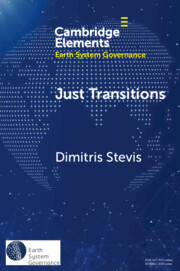 Stevis, D. (2023). Just Transitions: Promise and Contestation (Elements in Earth System Governance). Cambridge: Cambridge University Press. doi:10.1017/9781108936569
Stevis, D. (2023). Just Transitions: Promise and Contestation (Elements in Earth System Governance). Cambridge: Cambridge University Press. doi:10.1017/9781108936569
Join us in congratulating Dimitris Stevis on the publication of his latest book. Professor Stevis is a co-founding director of the Center for Environmental Justice.
The book is open access until May 10, 2023.
https://www.cambridge.org/core/elements/just-transitions/AE1A61FF8C637A72C13DC3F43113DC64
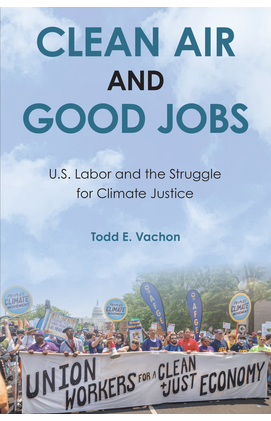 AUTHOR TALK October 10, 2023
AUTHOR TALK October 10, 2023
3:30-4:30pmMT
CLICK HERE for Video Recording
Clean Air and Good Jobs
U.S. Labor and the Struggle for Climate Justice
Todd E. Vachon
The labor–climate movement in the U.S. laid the groundwork for the Green New Deal by building a base within labor for supporting climate protection as a vehicle for good jobs. But as we confront the climate crisis and seek environmental justice, a “jobs vs. environment” discourse often pits workers against climate activists. How can we make a “just transition” moving away from fossil fuels, while also compensating for the human cost when jobs are lost or displaced?
In his timely book, Clean Air and Good Jobs, Todd Vachon examines the labor–climate movement and demonstrates what can be envisioned and accomplished when climate justice is on labor’s agenda and unions work together with other social movements to formulate bold solutions to the climate crisis. Vachon profiles the workers and union leaders who have been waging a slow, but steadily growing revolution within their unions to make labor as a whole an active and progressive champion for both workers and the environment.
Clean Air and Good Jobs examines the “movement within the movement” offering useful solutions to the dual crises of climate and inequality.
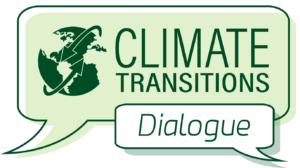 Save The Dates: June 6 & 7, 2022 The inaugural Climate Transitions Dialogue (CTD) will take place June 6 – 7, 2022 at Colorado State University Lory Student Center in Fort Collins, Colorado.
Save The Dates: June 6 & 7, 2022 The inaugural Climate Transitions Dialogue (CTD) will take place June 6 – 7, 2022 at Colorado State University Lory Student Center in Fort Collins, Colorado.
Community-Building & Exploration: CTD will catalyze and encourage people and groups to learn more about Colorado’s climate transition community; reflect on our circumstance in depth and gain collective understanding of specific climate transition needs; and begin the process of discovering innovative solutions. CTD aims to create a space that encourages inclusive conversation, mutual learning, and collaborative definition of issues and priorities for action.
Establishment of New Networks and Collaborative Action: CTD will begin and foster continued dialogue that encourages the formation of new relationships, networks and partnerships among public and private entities and across social, environmental, and technological ecosystems. Our goal is to build trust and generate ideas for joint action.
We are thrilled to be participating in the first trail session of summer, 2022 with @sustainmusicandnature at the FoCo Museum of Discovery Sunday, May 22.
Meet at the museum at 1pm where we will depart for a hike with @poudreheritage along the Poudre River Trail. Then we will return to the museum for a roof-top concert with @fancybitsmusic and @izcallirock . Bonus: Hear from our own Center for Environmental Justice co-founder, @stephanie_malin who will share her new book, Building Something Better: Climate Crises and the Promise of Community Change.
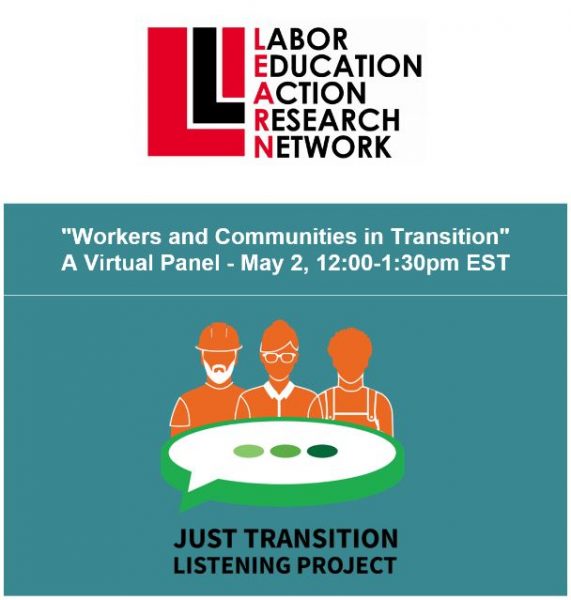
The Center for Global Work and Employment, Labor Education Action Research Network (LEARN), and Center for Environmental Justice at Colorado State University held a webinar on May 2 for a discussion on the Just Transition Listening Project (JTLP)’s 2021 report Workers and Communities in Transition.
Authors and JTLP Organizing Committee members J. Mijin Cha (Occidental College), Vivian Price (California State University Dominguez Hills), Dimitris Stevis (Colorado State) and Todd E. Vachon (Rutgers) will introduce the JTLP’s work and present the report’s main findings, to be followed by an extended Q&A. The report, which was conducted in partnership with the Labor Network for Sustainability underscores a critical point in the shift to much needed climate policies: Workers and their communities must not be left behind in the transition to a green economy and in fact, their role in the process of developing a just transition is critical to making it work fairly.
This event was sponsored by:
The Center for Global Work and Employment at Rutgers University
The Labor Education Action Research Network (LEARN)
Center for Environmental Justice at Colorado State University
View event recording here: https://col.st/Y8DRZ
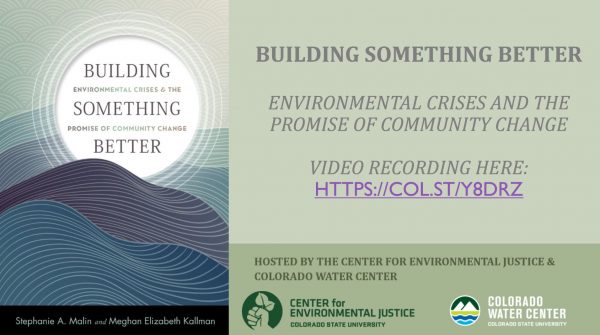
Building Something Better- Environmental Crises and the Promise of Community Change
by Stephanie A. Malin and Meghan Elizabeth Kallman
Panelists: Cody Two Bears and Tatewin Means
View event recording here: https://col.st/Y8DRZ
View slide deck here: Building Something Better Book Launch2022 (3)
Music can be used to understand and communicate about food justice and environmental justice. Communicating through music can strengthen and uplift food and environmental justice practice that is diverse in terms of epistemology, representation, and mode. Music can offer references that may speak to specific and diverse audiences, and opens the door for deeper understandings of inequity and justice in ways that step away from Eurocentric insistence on linear and written communication to teach, exchange knowledge, or debate. This multimedia event brings together four leading and inspiring thinkers, activists, and artists who connect food or environmental justice with music through their work in a panel discussion accompanied by musical samples and audience questions.
Climate Intervention to Cool a Warming Planet
Climate change is occurring and its impacts on ecosystems, humans, and the economy are growing. Yet, 30 years of international negotiations have thus far failed to address climate change through policy and mitigation in a way that will avert profound consequences. This reality is leading to the consideration of climate intervention--deliberate, large-scale intervention in the climate system designed to counter global warming or offset some of its effects.
Panelists:
Jim Hurrell, Professor and Scott Presidential Chair in Environmental Science and Engineering, Department of Atmospheric Science
Ken Shockley, Professor and Holmes Rolston III Chair in Environmental ||Ethics and Philosophy, Department of Philosophy
Moderated by Peter Backlund, Associate Director, School of Global Environmental Sustainability
Book Launch and Celebration for Handbook of Environmental Sociology Author Event
Monday, January 31, 2022, 2pm-3pm MST
View Recording of Webinar here
View Presentation Slide Deck here: https://col.st/Wgb3C
To purchase the book, or individual chapters, click here: https://link.springer.com/book/10.1007/978-3-030-77712-8
We celebrated and listened to editors (including the CEJ's own Stephanie Malin) and authors of this new publication. Sections feature Inequality, Political Economy, and Justice; Energy, Climate, and Health; Culture, The State, and Institutions; Population, Place, and Possibilities.
Check out the Table of Contents here: https://col.st/mMl6g
Recording HERE:
November 9, 2021 at 12:00PM Mountain Standard Time
Colombia is a dangerous place for environmental leaders. Just in 2020, sixty-five environmentalists were killed. Ethnic groups are increasingly at risk as extractive economies expand into their ancestral lands to open mining and agribusiness frontiers. In this roundtable, leaders from the Pacific coast—a region of Indigenous and Black traditional territories—will discuss the rights of their communities, the impact of climate change, and the consequences of human rights violations on their livelihoods. Moderator, Professor Marcela Velasco and panelists from Colombia shared perspectives on the circumstances for this virtual event.

Careers in Environmental Justice
RECORDING of the event can be found here: Career Connections: Environmental Justice Panel - YouTube
RECAP of the event can be found on this document.
On October 5, 2021, The Center for Environmental Justice and Warner College of Natural Resources Career Center hosted panelists from a variety of fields to discuss Environmental Justice careers.
Center for the New Energy Economy Webinar
If you missed the discussion with Vernice Miller Travis and Governor Bill Ritter you can view the recording here.
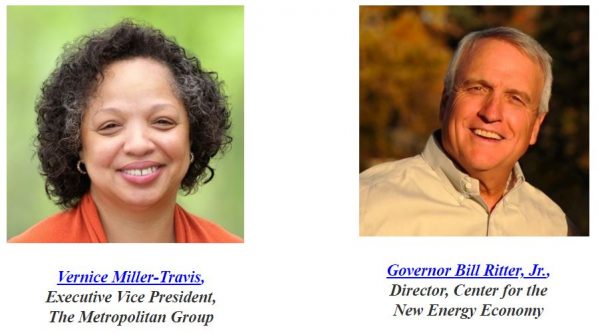
When: September 15

Challenges and Perspectives of a Just Transition in Europe
March 7, 2022
You can find the recording of the event, as well as the slides here.
If you want to purchase the Handbook of Environmental Labour Studies (Palgrave, 2021) you can use the code PalGeoHB2022* at checkout to receive a 20% discount (valid until June 4, 2022).
Hosted by European Trade Union Institute
What are the main challenges of a just transition to a zero-carbon economy in the EU? Taking a broad-based theoretical approach, speakers at this webinar present the current EU context for a just transition, paying particular attention to the European Green Deal and the Fit for 55 package.
—To what extent can current EU policies and practices be considered a step towards a more comprehensive policy framework to integrate climate/environmental and labour priorities?
—How far are institutions and the welfare state ready to address the new challenges posed by the eco-social paradigm shift, possibly under a low growth or de-growth scenario?
—What strategies do trade unions have and what main challenges do they face?
Speakers
- From “Just Transition” to an “Eco-Social State”?
Bela Galgoczi (ETUI) - Workers, Trade Unions, and the Imperial Mode of Living: Labour Environmentalism from the Perspective of Hegemony Theory
Markus Wissen (Berlin School of Economics and Law - HWR) - Multilevel Engagement of Trade Unions with Climate Change Mitigation
Adrien Thomas (LISER, Luxembourg) and Valeria Pulignano (KU Leuven)
Discussant: Samantha Smith, Director of the Just Transition Centre of the International Trade Union Confederation (ITUC)
Moderator: Nora Räthzel (University of Umeå, Sweden)
 Building Relational and Effective Partnerships with Indigenous Communities
Building Relational and Effective Partnerships with Indigenous Communities
With James Rattling Leaf and Gwen Bridge
Thursday, January 20th, 2022
10:00am Hawaii /11:00am Alaska /12:00pm Pacific /
1:00pm Mountain / 2:00pm Central / 3:00pm Eastern / 4:00pm Puerto Rico
The Rising Voices Center for Indigenous and Earth Sciences is hosting an online event focused on recommendations for working with Indigenous communities based on the knowledge that long-term relationship building with these communities is the foundation upon which educational programs, research collaborations, and other initiatives must be co-created. This presentation will define best practices in building relationships and clarify a process for establishing and maintaining effective collaborations with Indigenous communities that respect sovereignty and self-determination.
Event Recording Here:
CEJ is proud to celebrate local Latina & Latino Leaders for their work in Environmental Justice
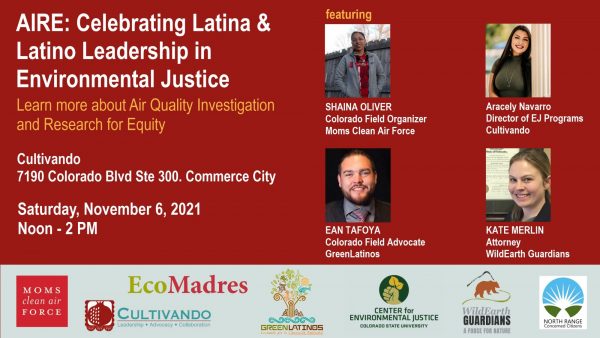
Colorado EnviroScreen virtual public meeting
Monday, Sept. 20, 2021 6 - 7:30 p.m.
The Colorado Department of Public Health and Environment is working with a team at Colorado State University, including the Center for Environmental Justice, to create CO EnviroScreen. As a new interactive mapping tool, CO EnviroScreen will identify environmental health inequities and disproportionately impacted communities in Colorado, as outlined in the Environmental Justice Act (HB21- 1266). Learn more about CO EnviroScreen (cdphe.colorado.gov/enviroscreen).
MAY 19th, 2021
CSU CEJ's Book Launch
9:30 – 9:40: Welcome and Introductions, Melinda Laituri
9:40 - 9:50: CEJ at CSU, Josh Sbicca
9:50 – 9:55: EJ in the Anthropocene, Christine Winter, University of Sydney
9:55 – 10:50: EJ in the Anthropocene contributor panel presentations and discussion, Moderator, Stacia Ryder
10:50-11:00: Closing comments, CEJ Steering Committee
GUESTS
We sponsor and co-sponsor visits and public presentations by many distinguished scholars and activists over the years, always well-attended by hundreds of CSU and community members.
ROUNDTABLES
Panels on a wide range of topics that bring together researchers from across disciplines in order to foster a holistic and transdisciplinary approach to environmental justice. Attendees at past Roundtable events have included Colorado State University students and faculty, Fort Collins business owners, and community members. Please see the rubric we have used to facilitate these webinars.
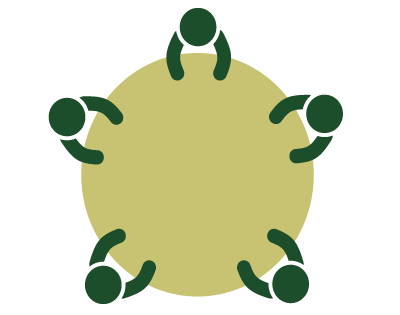
Interested in Participating in our next Roundtable?
View our Rubric and send us a message! We'd love to have you!
WEBINARS
The goals of the webinars are similar to those of roundtables but webinars allow us to foster collaborations between researchers, policy makers, and activists from across the country and the world.
MAJOR PUBLIC EVENTS
Events with high visibility and impact:
- Just Transition Summit, May 2018
- Stories of Water Equity and Environmental Justice Symposium, October 2017
- Environmental Justice in the Anthropocene Symposium, April 2017 SEE PROGRAM Link Here: https://drive.google.com/file/d/1opzCGJvEhxKFCTLu2ehukvSDGLMMgGGp/view
